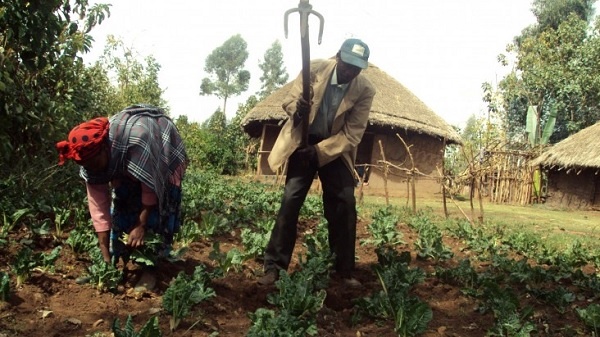
The need for land reform is closely linked to Ethiopia’s demographic challenges. With 71% of the population aged under 30, who often have little or no opportunity to hold land of their own.
(The Nordic Africa Institute)– Over the last 15 years, Ethiopia has seen remarkable economic growth. The agricultural sector is part of this growth, but its proportional contribution to the overall economy has gone down. There is a need to transform Ethiopian agriculture, not least when it comes to the inefficient land laws that impede young people from investing in farmland. In a new policy note, researcher Atakilte Beyene gives recommendations on how this can be done.
In Ethiopia, the average total farm land area per smallholder household is 0.78 hectare. The average number of plots constituting a household farm is four. Since the start of the land redistribution programs in the mid-1970s, the general trend has been towards smaller and more fragmented land plots.
“For decades now, agricultural reform programs have emphasized the need for land consolidation and land accumulation among smallholder farmers. But no such trend has yet been observed”, says Atakilte Beyene, senior researcher at the Nordic Africa Institute.
The need for land reform
According to Atakilte Beyene, the today’s land tenure system is partly to blame for the land fragmentation. It impedes or prevents the long-term or complete transfer of land.
“Land leasing, for example, is only practiced for short periods of three years, on average, which makes it difficult for entrepreneurial farmers to plan and take loans for long-term investments”.
Atakilte Beyene advises policy makers to encourage a gradual consolidation of farms through long-term, or permanent, transfer of plots to farmers who are willing and able to invest. Gathering scattered land plots into larger production units would promote investment in improved technologies and methods.
The need for land reform is closely linked to Ethiopia’s demographic challenges. With 71 per cent of the population aged under 30, Ethiopia is a country of young people, who often have little or no opportunity to hold land of their own. And although Ethiopia has a proportionally bigger rural population than other African countries, there is a slow but steadily rising urbanization trend.
Read the complete story at The Nordic Africa Institute
